- Electric vehicles produce less carbon emissions when compared to gas-powered cars.
- Battery recycling reduces the need to mine for new minerals.
- Sodium-ion batteries change the need for costly lithium mining.
- Several EV charging stations rely on renewable energy rather than coal or natural gas.
- Compared to EV manufacturing, tailpipe emissions create more greenhouse gasses.
Another common myth about electric vehicles is that they aren’t any better for the environment compared to gas-powered cars. This myth is far from the truth, especially when taking vehicle emissions into account.
EV manufacturing does have an impact on the environment; but once they hit the road, the impact lessens. Gas-powered cars continue to harm the environment long after they leave the factories. Let’s examine a few myths about EVs and the environment.
Myth #1: Charging electric vehicles harms the environment more than filling a car with gas.
Myths perpetuate that EVs harm the environment thanks to the power needed to charge them. Charging stations that rely on coal or natural gas do create some carbon emissions at the power plants, but more EV charging stations are using renewable resources like non-polluting solar or wind power.
However, the amount of carbon released to charge an EV is significantly less than the carbon released from tailpipes. The EPA and Department of Energy have a tailpipe emissions calculator that lets you see how your EV or gas-powered vehicle is affecting the environment. Input your vehicle and your zip code, then the calculator shows you your vehicle’s impact.
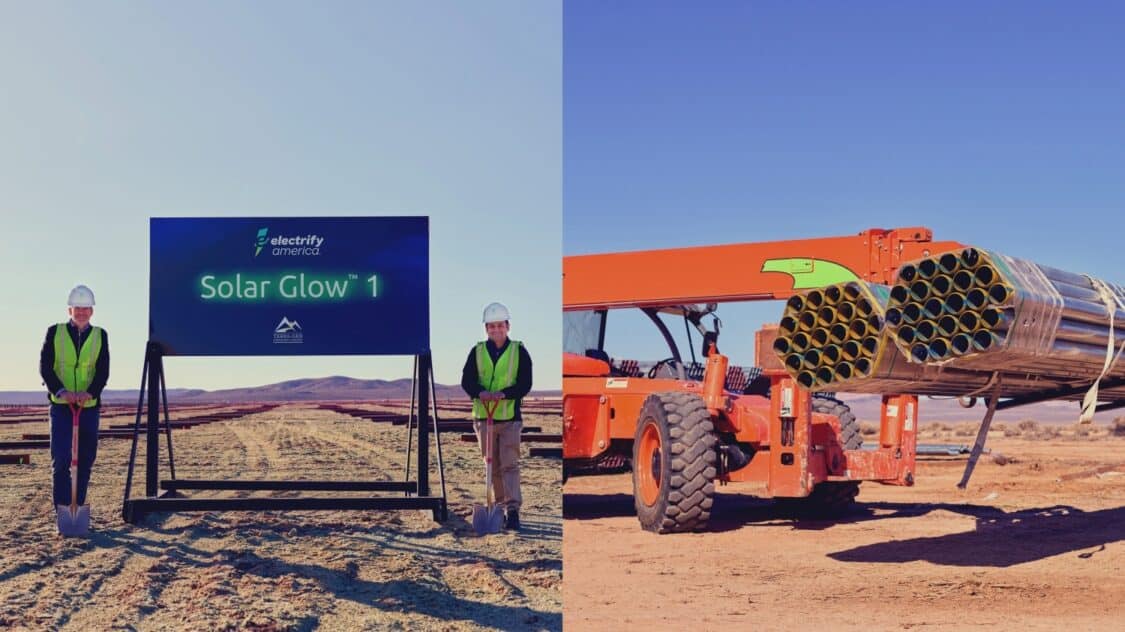
Several EV charging companies are dedicated to using only renewable energy to power their plugs. Electrify America proudly buys renewable energy to support its impact on the power grid. The charging giant broke ground on a massive solar farm in Southern California. Electrify America has begun building EV charging stations with solar panels and canopies.
Tesla continues to develop eco-friendly products. The automaker increased the range of its vehicles so they spend less time charging, and the Tesla Supercharger Network was 100% renewable, reducing the impact on power grids. EVgo and Shell also work hard to use renewables, whether local power sources supply them or they buy renewable-energy credits.
Myth #2: Battery manufacturing negates the environmental benefits of driving an EV.
Throughout its lifetime, EVs have lower emissions than gas-powered cars – even after manufacturing is taken into account. While it is true that battery manufacturing pollutes the environment, it’s important to consider carbon emissions over the lifetime of the vehicle.
As more battery manufacturers invest in alternatives to lithium-ion batteries, the impact on the environment will reduce even more. For example, battery manufacturers are developing sodium-ion batteries, and the first sodium-ion-powered EV will be available for sale in China in late 2023.
In 2001, the Argonne National Laboratory studied the lifetime emissions of a battery-powered EV and a gas-powered vehicle. The laboratory estimated that the greenhouse-gas emissions for an EV were higher at the beginning and end of the vehicle’s life, but a gas-powered car still had more emissions from start to finish.
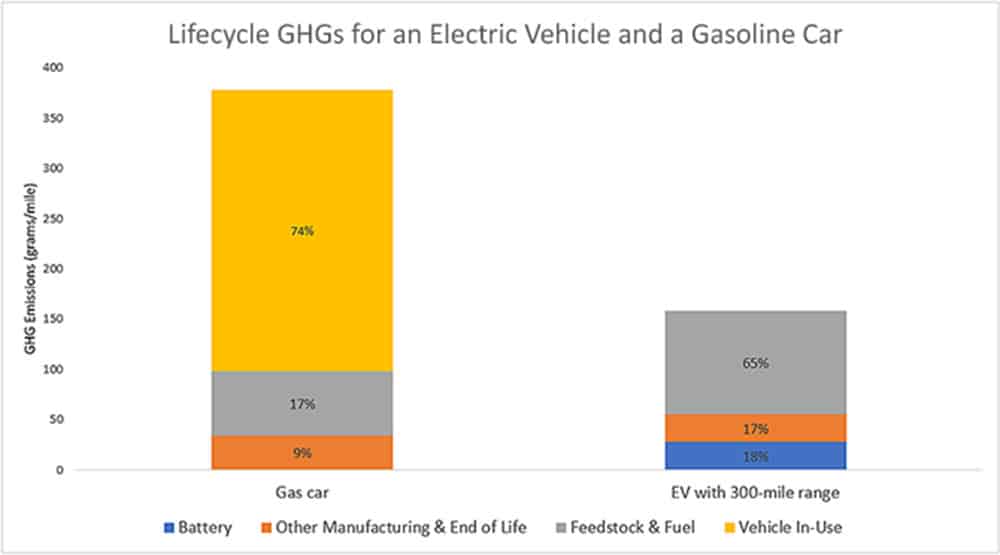
The Argonne National Laboratory based its study on an EV with a 300-mile range. According to the study, the laboratory estimated that 35% of the emissions in an EV came from manufacturing the battery and the vehicle, while 36% of a gas-powered car’s emissions came from manufacturing the vehicle and producing gasoline.
Over each vehicle’s lifespan, the gas-powered car emitted about 375 grams per mile of greenhouse gas, while the EV emitted 150 grams per mile of greenhouse gas.
Myth #3: EV batteries cannot be recycled.
This myth is very far from the truth, as EV batteries can be recycled. When EVs are totaled, or the batteries die, auto recyclers break down the packs and send the parts to be reused. The nickel and lithium are separated and crushed to be purified and reused.
In June 2022, Toyota announced a partnership with Redwood Materials to increase and improve its battery-recycling program. Each year, Redwood Materials currently works with about 6 GWh of end-of-life materials, and the partnership is expected to increase that annual number to 100 GWh by 2025 – which is enough to power at least one million EVs annually.
Recycling EV batteries reduces the need for new mining, thus reducing EV manufacturing’s impact on the environment. Stakeholders in the EV industry understand that the goal is to reduce the impact on the environment, and they are working hard to accomplish their goals.
ADVERTISEMENT

FEATURE IMAGE: ELECTRIFY AMERICA
FTC: We use income-earning auto affiliate links. Learn more.










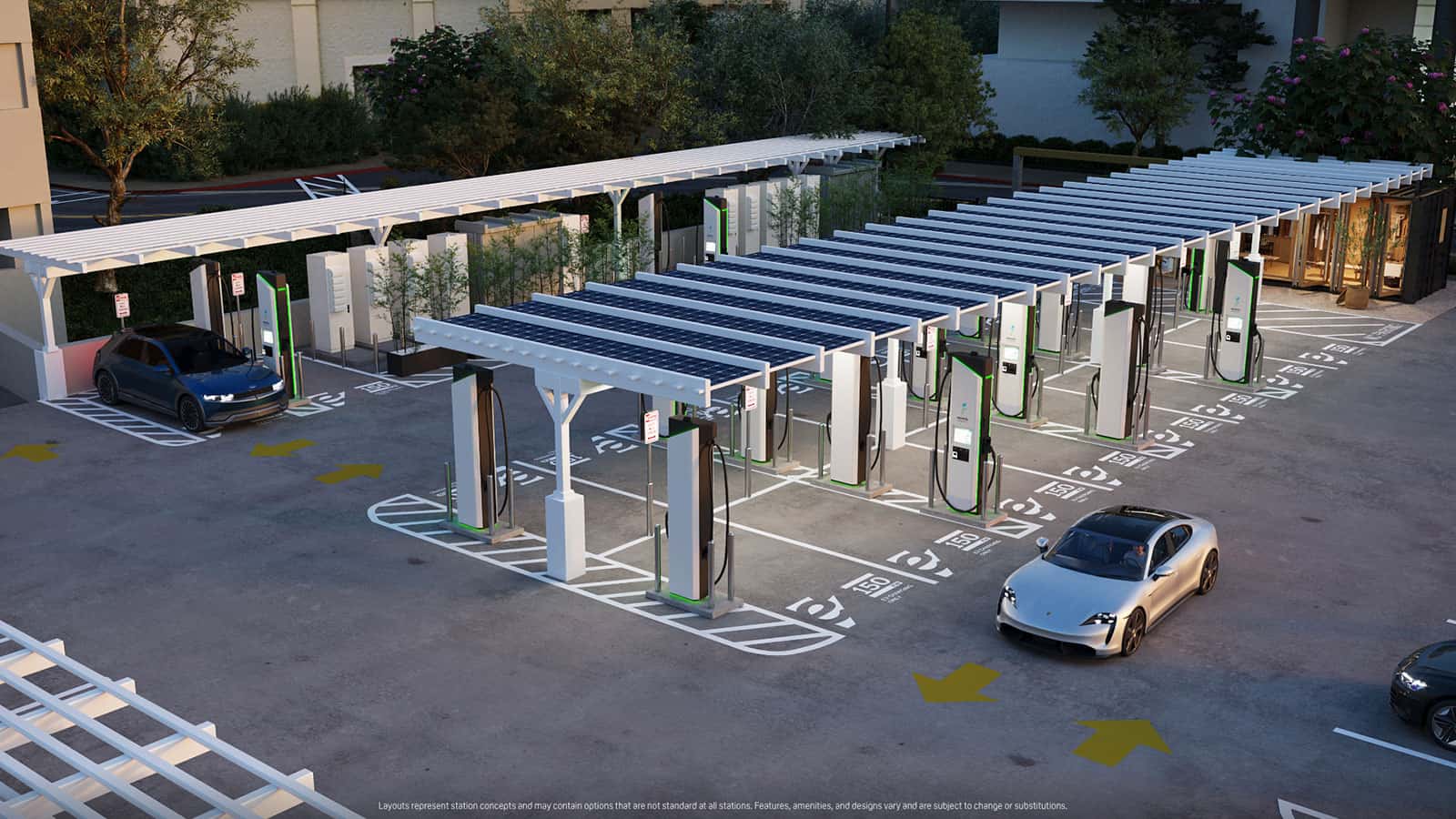


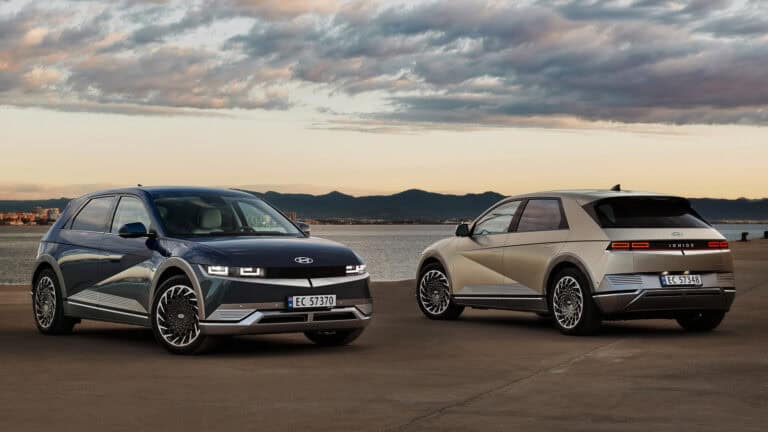












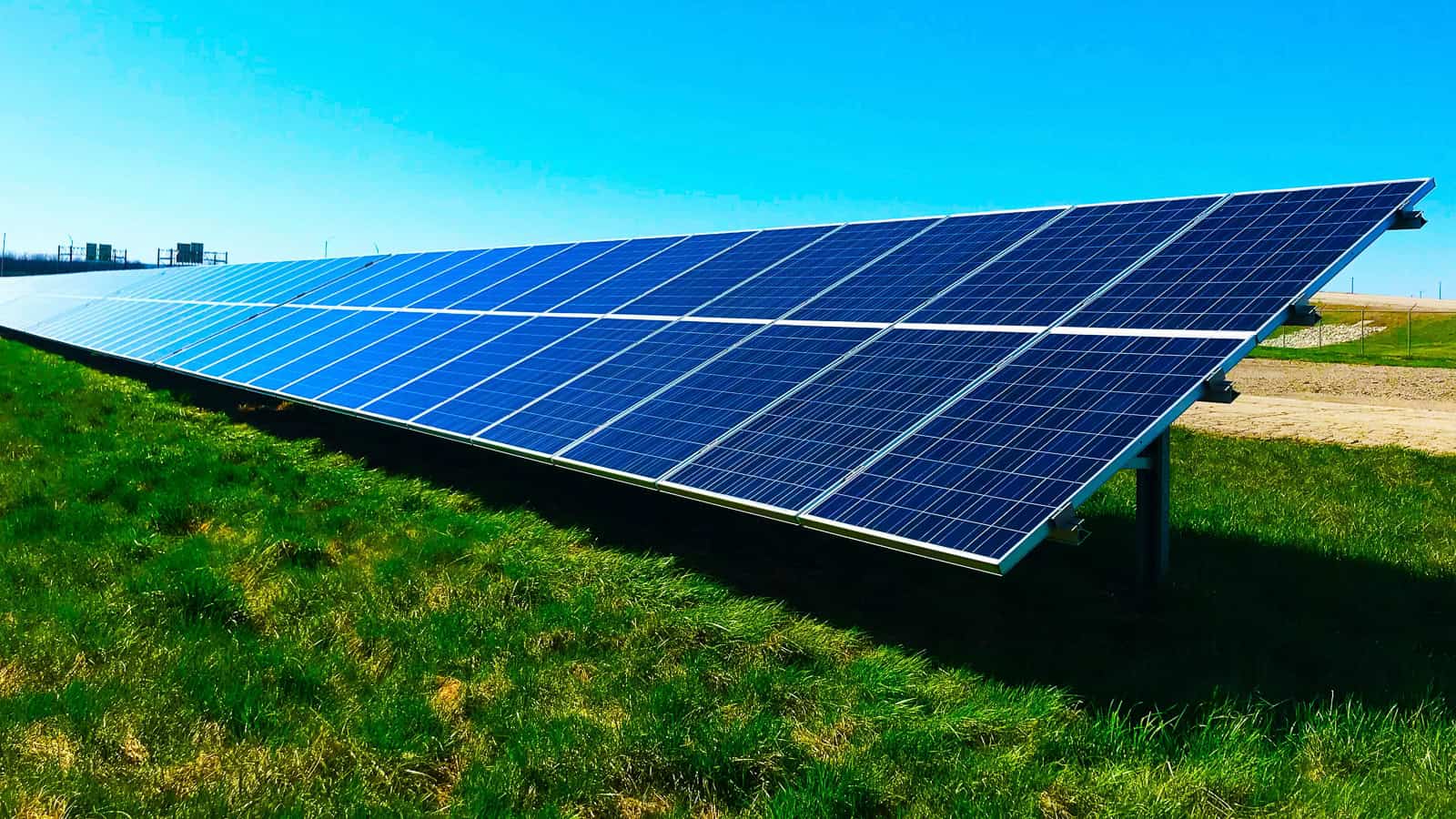
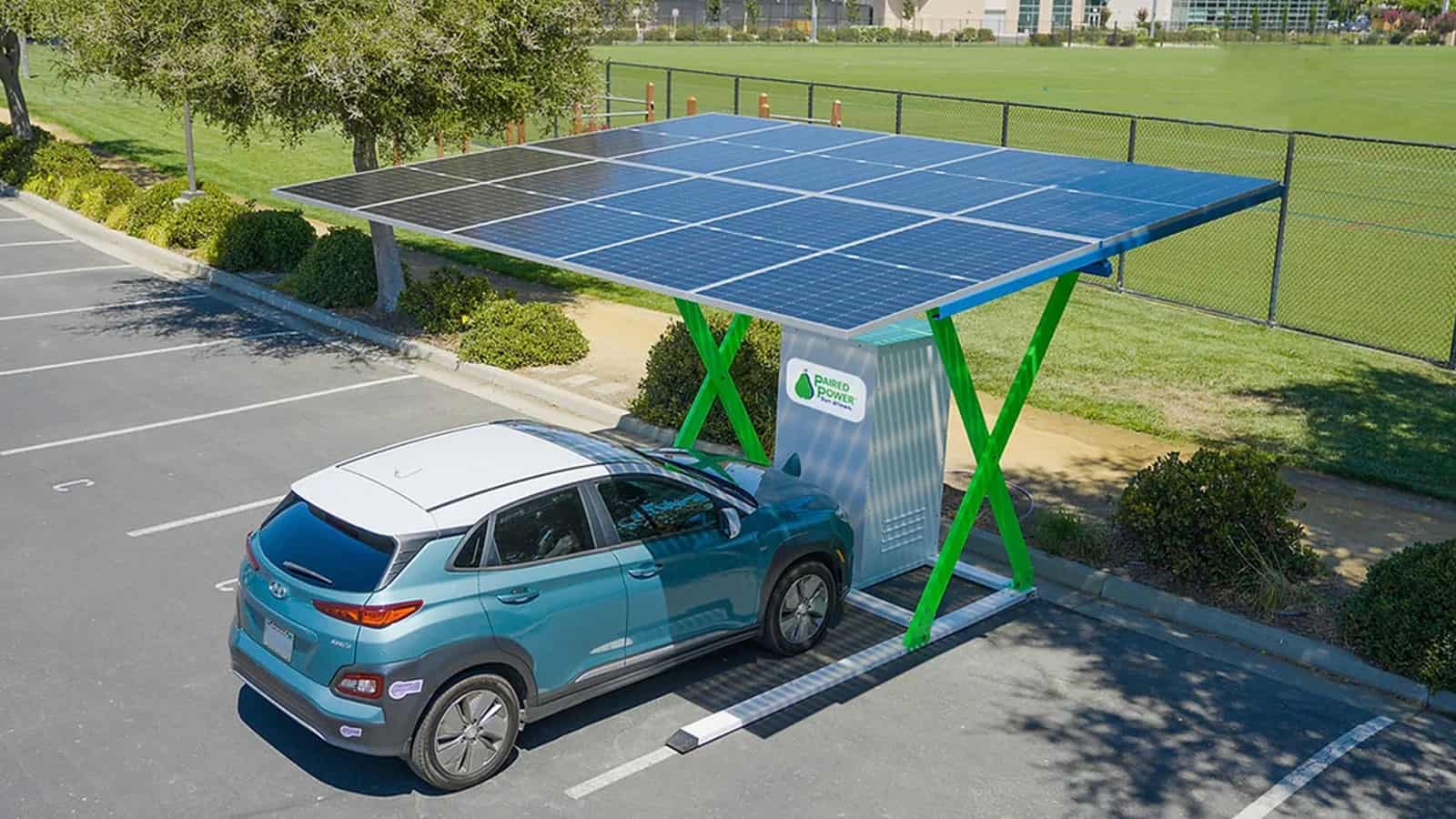
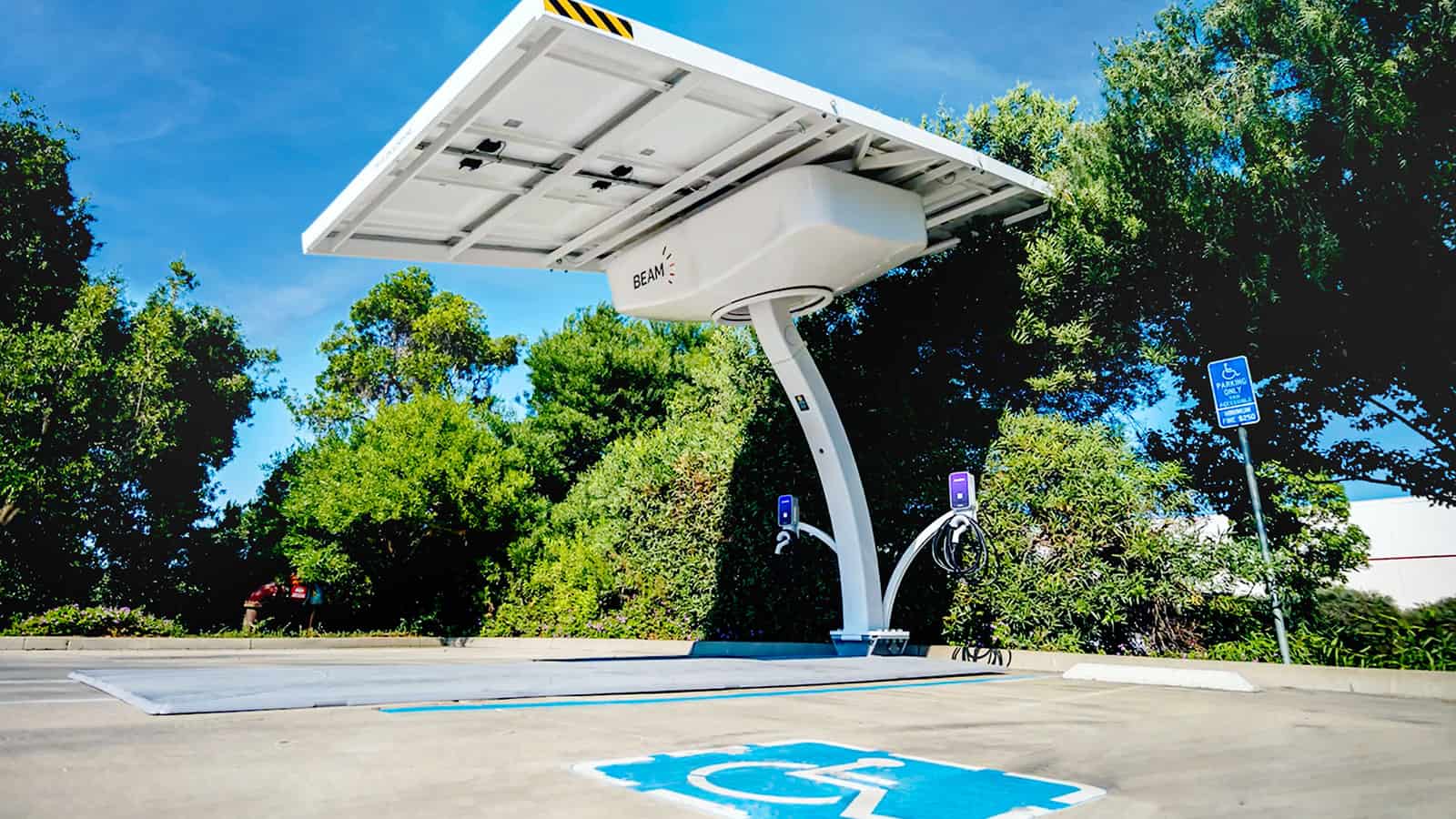
One Response